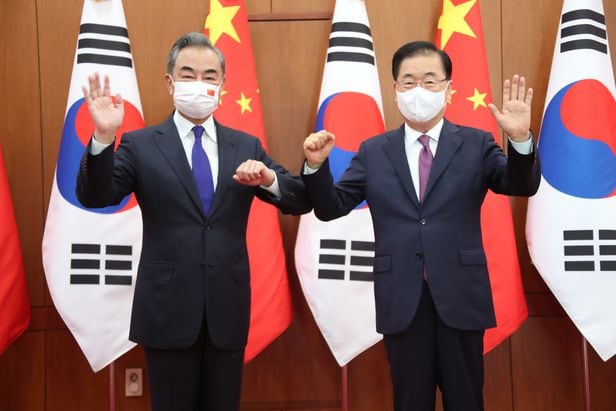US ‘Fighting Tactics’ Hurt Itself More than Others
Taking trade as an example, in 2018 the U.S. instigated a trade war between China and the United States, imposing huge tariffs on hundreds of billions of dollars of Chinese goods. Three years later, research published by the Brookings Institution, the Peterson Institute for International Economics, the U.S.-China Business Council and several other organizations, shows that this trade war has forced U.S. companies to accept lower profits, cut salaries and make significant layoffs, with the loss of more than 200,000 jobs. The resulting 49% plunge in foreign direct investment in the U.S. in 2020 is a clear drag on economic growth.
In science and technology, in recent years the U.S. has imposed sanctions on Chinese high-tech companies, intensified its technology embargo against China, introduced the United States Innovation and Competition Act of 2021 and promoted “decoupling” and “breaking [supply] chains.” However, in March of this year, a U.S. media survey of more than 1,500 people in the science and technology sector in the United States showed that more than half the respondents admitted that the antagonism will damage U.S. companies themselves. U.S. economist Andrew Polk has said, when we look back at “putting Huawei on the entity list as the thing that accelerated China’s tech rise” it will be counterproductive as “it is going to ultimately prove the moment we lit a fire under China.”
In the realm of public opinion, some U.S. politicians have spared no effort to smear China and distort reality in a variety of ways. From promoting the Chinese lab-leak theory to falsely claiming that there is genocide in Xinjiang to describing the acts of the Hong Kong mob as a “beautiful sight to behold,” there is no end to creating something from nothing and the reversal of right and wrong. The result is that more and more insightful people are seeing through the American “sales patter.” As righteous voices ring out around the world debunking U.S. lies, America’s international credibility is increasingly diminished. The German writer Michael Lüders hit the nail on the head when he pointed out that the U.S. government and interest groups are adept at selecting or distorting facts, to confuse right and wrong and manipulate public opinion.
Diplomatically, the U.S. is courting Europe, Southeast Asia and elsewhere in a futile attempt to create a front to limit China. However, such attempts to create antagonism and undermine international cooperation have met with widespread resentment and resistance. President Emmanuel Macron of France said: “The G7 isn’t a club that’s hostile to China.” Singapore’s Minister for Foreign Affairs Vivian Balakrishnan has indicated that Singapore “doesn’t want to be used.” Voice of Vietnam Radio said that the U.S. government does not really see Southeast Asia as a priority compared to the many diplomatic commitments that China has made to Southeast Asian countries on multiple occasions in recent years.
The reason why America’s “fighting tactics” are backfiring on itself is that the world has entered the 21st century and the trend of the times is cooperation and mutual benefit. Yet the U.S. clings to the law of the jungle and the logic of hegemony. How can that work if you’re swinging your fist when it doesn’t assist you? Facts have proven time and time again that unilateral bullying is unpopular, blocking and suppressing are unpopular and obstructing cooperation is also unpopular. Those who focus on helping development and promoting cooperation will be truly welcomed; those who indulge in forming gangs and provoking confrontation will eventually make fools of themselves.
America’s tactics have backfired because the United States is facing a variety of problems with stubborn racial troubles, increasing polarization between rich and poor and protracted fighting between the two political parties. The root cause lies in fundamental flaws in its politics and system of governance. If you don’t want take medicine to cure a disease and don’t solve your own problems but instead blame the symptoms on other countries and lash out at every turn, the result can only be that the harder you punch, the more you hurt yourself.
U.S. politicians who are obsessed with throwing punches abroad should change their behavior fast. In domestic matters, people should work hard to face up to their problems and deal with them; in foreign affairs they should follow the current trend of unity and cooperation as soon as possible. Those who think they’re a “strongman” and “always talk with their fists” only end up hurting themselves more.

